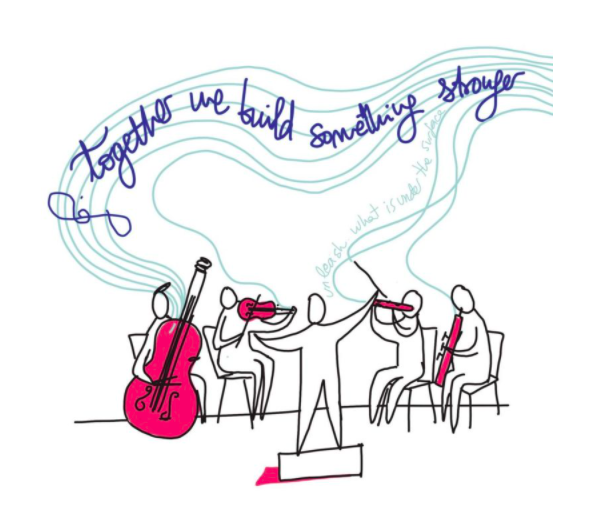The Bahá’í Faith offers a profound and holistic perspective on the interconnected principles of truth, love, and justice, highlighting their intrinsic relationship to the unification of humankind. These ideals serve as a cornerstone for building a global society characterized by harmony and mutual respect. Within this framework, each concept emerges not merely as an isolated virtue but as an integral thread woven into the fabric of human existence.
Truth as a Foundation for Understanding
At the heart of Bahá’í teachings lies the notion of truth. This principle is not confined to a mere adherence to factuality; it transcends into a moral imperative that compels individuals to seek a deeper understanding of existence. The pursuit of truth is characterized by an unyielding commitment to honesty and integrity, which forms a foundation for all human relationships. Recognizing the relativity of personal interpretations of truth enhances the necessity for humility and openness in discourse.
Truth, according to Bahá’í teachings, is not merely subjective. It embodies the oneness of God, who is depicted as the ultimate source of all truth. When individuals embrace this divine reality, they begin to cultivate a consciousness that transcends limitations and prejudices, enabling a broader understanding of the human condition. The quest for truth, therefore, becomes an actively engaged process—one that leads to a comprehensive appreciation of the diversity within humanity while upholding a collective unity.
The Power of Love
Complementing the pursuit of truth is the principle of love, which Bahá’í writings elevate to the highest expression of human interaction. Love acts as the nurturing force that binds individuals together, allowing them to navigate the complexities of life while fostering an environment of empathy and compassion. Embracing this ideal necessitates an understanding that love is multidimensional, encompassing not only affection and warmth but also an unwavering commitment to justice, equity, and service to others.
The Bahá’í perspective posits that genuine love transcends mere emotional attachment; it is an active expression of the will to uplift others. This aligns with the belief that unity is achieved through selfless acts that prioritize the well-being of the collective over the individual. Love manifests in tangible actions, such as supporting marginalized communities and advocating for social justice. Thus, it becomes evident that love is not simply a sentiment but a transformative power, facilitating reconciliation and harmony amidst diversity.
Justice: The Balance of Individual Rights and Collective Well-Being
Integral to the discussion of truth and love is the principle of justice, which Bahá’í teachings delineate as a requisite component for creating equitable societies. Justice is seen as the means by which the rights of individuals are honored while simultaneously safeguarding the welfare of the community. In this context, justice does not merely manifest as legalistic fairness; it encompasses a deeper, spiritual dimension that requires moral discernment and compassion.
The Bahá’í approach to justice stresses the significance of recognizing the inherent dignity of every individual. It posits that true justice is not found in the rigid application of laws but in the understanding and application of moral principles that elevate human dignity and promote social cohesion. This perspective encourages individuals to contemplate their actions and their broader societal implications, fostering a sense of responsibility towards others. A society that prioritizes justice is one where love can flourish because the foundational rights of each member are recognized and upheld.
The Interconnectedness of Truth, Love, and Justice
To comprehend the unification of humankind through the lens of Bahá’í teachings is to appreciate the interdependence of truth, love, and justice. Each principle informs and enhances the others, creating a holistic framework for action and reflection. When individuals engage in the pursuit of truth, they cultivate a love that transcends superficial social barriers, leading to a more profound understanding of universal kinship. In turn, love informs one’s pursuit of justice, motivating individuals to champion the cause of equality and fair treatment for all.
This triad of principles fosters a unique paradigm that seeks not only to address societal fractures but also to cultivate a deeper understanding of unity in diversity. In a world rife with conflict, the wisdom encapsulated within Bahá’í teachings offers a remedy—a blueprint for navigating the complexities of modern existence. The vision of a harmonious society, built upon the pillars of truth, love, and justice, challenges individuals to rise above divisive ideologies and cultivate an environment where genuine collaboration and understanding can thrive.
In conclusion, the Bahá’í teachings illuminate the importance of truth, love, and justice as foundational elements for the advancement of humanity. The call to action is both an invitation and a challenge. It implores every individual to contribute actively to the realization of a united global community. Engaging with these principles not only enriches personal development but also serves as a catalyst for societal transformation. As such, the pathway to unity lies in our collective commitment to uphold and enact these divine mandates in our daily lives.
